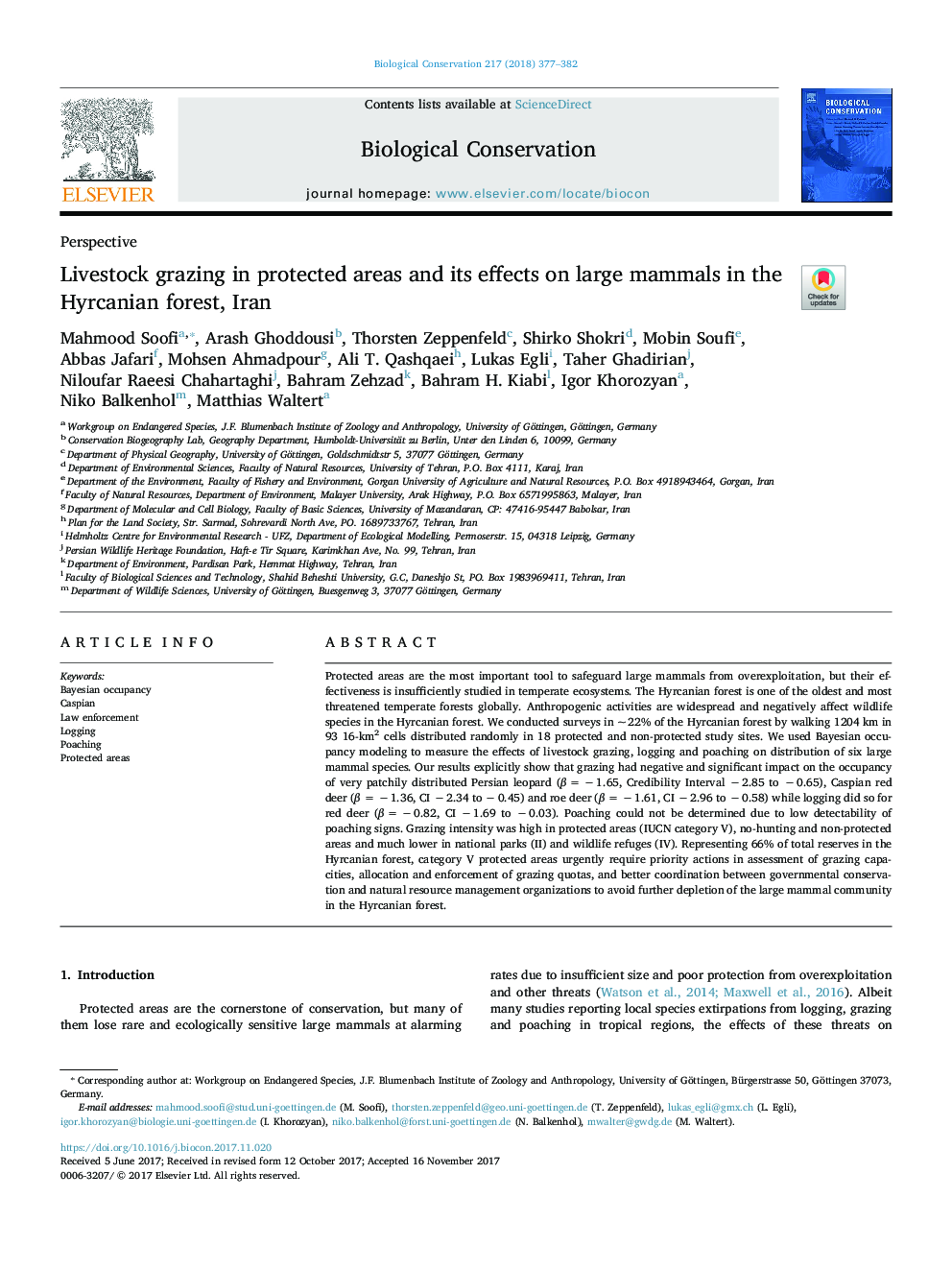| Article ID | Journal | Published Year | Pages | File Type |
|---|---|---|---|---|
| 8847554 | Biological Conservation | 2018 | 6 Pages |
Abstract
Protected areas are the most important tool to safeguard large mammals from overexploitation, but their effectiveness is insufficiently studied in temperate ecosystems. The Hyrcanian forest is one of the oldest and most threatened temperate forests globally. Anthropogenic activities are widespread and negatively affect wildlife species in the Hyrcanian forest. We conducted surveys in ~ 22% of the Hyrcanian forest by walking 1204 km in 93 16-km2 cells distributed randomly in 18 protected and non-protected study sites. We used Bayesian occupancy modeling to measure the effects of livestock grazing, logging and poaching on distribution of six large mammal species. Our results explicitly show that grazing had negative and significant impact on the occupancy of very patchily distributed Persian leopard (β = â 1.65, Credibility Interval â 2.85 to â 0.65), Caspian red deer (β = â 1.36, CI â 2.34 to â 0.45) and roe deer (β = â 1.61, CI â 2.96 to â 0.58) while logging did so for red deer (β = â 0.82, CI â 1.69 to â 0.03). Poaching could not be determined due to low detectability of poaching signs. Grazing intensity was high in protected areas (IUCN category V), no-hunting and non-protected areas and much lower in national parks (II) and wildlife refuges (IV). Representing 66% of total reserves in the Hyrcanian forest, category V protected areas urgently require priority actions in assessment of grazing capacities, allocation and enforcement of grazing quotas, and better coordination between governmental conservation and natural resource management organizations to avoid further depletion of the large mammal community in the Hyrcanian forest.
Related Topics
Life Sciences
Agricultural and Biological Sciences
Ecology, Evolution, Behavior and Systematics
Authors
Mahmood Soofi, Arash Ghoddousi, Thorsten Zeppenfeld, Shirko Shokri, Mobin Soufi, Abbas Jafari, Mohsen Ahmadpour, Ali T. Qashqaei, Lukas Egli, Taher Ghadirian, Niloufar Raeesi Chahartaghi, Bahram Zehzad, Bahram H. Kiabi, Igor Khorozyan, Niko Balkenhol,
